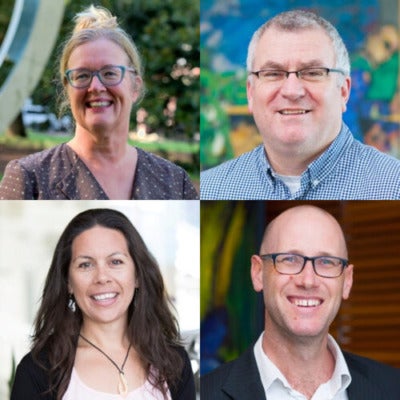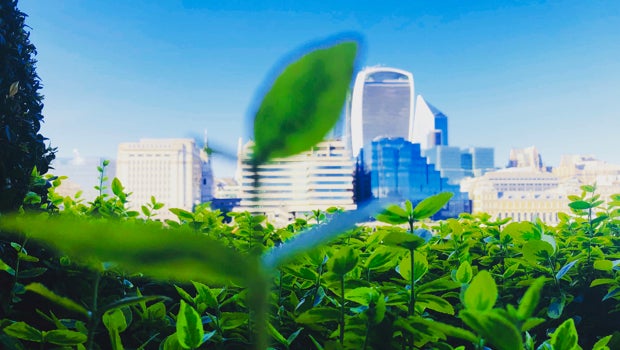One consequence of an era in which headlines about the climate crisis and societal inequality run side-by-side? The intersection of these issues is increasingly visible to a broader public. In business, tackling the challenge of climate justice can require a substantial change in thinking about value creation and the place of the enterprise in the wider world. Fortunately, there are educators who are stepping up to this challenge.

Professors Marjolein Lips-Wiersma, Peter McGhee, Amber Nicholson and Peter Skilling of Auckland University of Technology’s Business School in New Zealand are such educators. Last year, the four were recognized with an Aspen Institute Ideas Worth Teaching Award for their course “Ethics, Responsibility and Sustainability.” The course weaves Māori traditions and cultural worldview alongside Western business frameworks to challenge assumptions around corporate responsibility, ethical decision-making, corporate transparency and environmentally sustainable business practices. We spoke with Professors Lips-Wiersma, McGhee, Nicholson and Skilling about their course, new approaches to management, and how business leaders should think of the needs of populations who, despite having contributed the least to climate change, may feel its effects the hardest.
![]()
Your course incorporates Māori traditions and worldview with Western business frameworks in order to challenge assumptions around corporate responsibility. How do you hope this approach will contribute to more sustainable business models?
Within an Indigenous worldview, all aspects of the natural environment are considered to have their own physical and spiritual life forces, and these life forces are intimately connected to the well-being of human society. Indigenous sustainability practices do not just refer to caring for physical landscapes but include caring for all that is nourished by the landscape—culture, animals, and people. This creates a long-term intergenerational obligation to protect and enhance the spiritual and material well-being of all of nature’s resources that have been passed down by ancestors.
Within a business context, this translates to the goal of the organisation being the enhancement of multi-dimensional well-being; well-being of spirit, culture, society, environment and the economy. In this view, the success of an organisation is measured by its contribution to and relationship with the environment, its people, its community, its bottom line and its spirit. Recognition of the reciprocal exchange between these dimensions can have a greater impact on collective well-being and produce far more value than our narrow profit-driven models.
In using such a framework, we challenge students’ preconceived notions that money is the source of wealth and success. By reflecting on their own lives, we highlight how family, environment, culture and spirit are an intrinsic part of who they are, despite the societal constructs of individual success and economic happiness. By showcasing Indigenous values and businesses, we offer alternative ways of doing business and doing good that are new learnings for many of our students. We hope to change the approach to what is valued in our economic endeavours.
In light of the global climate crisis and with the worst effects often felt by those who have contributed the least, what questions do you hope managers will ask when designing new products or services, making choices about capital allocation or developing operational models?
From our perspective, we feel that managers need to be asking a wide range of questions, such as:
- How can I measure progress in a comprehensive and reliable way, so that I can back up each sustainability claim with evidence?
- Who challenges me within and outside the organisation to do the maximum possible rather than the minimum I can get away with?
- Do I strive for the same high sustainability standards regardless of which country I operate in?
- Do I encourage talk about the actual sustainability issues facing humanity, or only about the “business opportunities” that green products and services can create?
- Do I look for sustainable add-ons to our existing system, or do I strive for transformative change towards a circular economy?
- If my company meets its 2030 goals, will the total of its pre- and post-consumer impact make the planet better or worse? If worse, what fundamentals need redesigning?
How do the course assignments reflect the course’s expanded worldview? How does the curriculum open up new pathways of exploration beyond what students may get in a typical, more traditional business course?
All of our assessments ask students to explore perspectives and paradigms that they may not have to grapple with elsewhere in their business degree. In their first assessment, students evaluate an instance of business practice against an ethical standard. This exercise requires students to engage with the fact that business behaviour can be judged not just in terms of its financial or legal implications, but also in terms of its ethical dimension. To complete this exercise, students have to explain and apply one ethical standard from the three that we present and discuss in class. One of these standards (the Mauri Model, where “mauri” refers to the life force that connects all things) is based on an Indigenous approach to ethics that takes a holistic and relational approach. Using the Mauri Model, the “rightness” of an action is assessed based on its impact on environmental well-being, cultural well-being, social well-being and economic well-being.
In another assessment, students are asked to research how business behaviour contributes to a social or environmental problem, and how business could be re-shaped so as to reduce or avoid that problem. To force students to go beyond simplistic understandings of problems and solutions, we require them to show how business practices are related to the systems of rules and rewards embedded in the prevailing economic system, and we require them to analyse how firm decisions are related to the structures that business operates in, and the mental models that underpin those structures.
As alumni from your course go into leadership positions across industries and sectors, what is the one lesson that you hope will stick with them throughout their careers?
There are so many lessons that you want your alumni to remember after a course like ours. You want them to understand the interconnected nature of the world, and especially the centrality of the environment. You want them to appreciate the proper role of business in society. And you want them to know that profit maximizing rarely equates with human flourishing. However, if we had to pick one thing, it would be that our alumni know, both individually and especially collectively, that they can make a difference. Business can be a powerful force for good in this world, and business leaders can help bring about positive change; they do not have to repeat the flawed thinking of previous generations. And if there is one skill such leaders need, it is the ability to challenge, influence, and shift existing worldviews that perpetuate our current unsustainability. The only way to change the world is to change the story – that is what we want our alumni to accomplish.
![]()
Interested in more innovative insights for business education? Browse our complete collection of interviews with outstanding educators, and subscribe to our weekly Ideas Worth Teaching digest!

